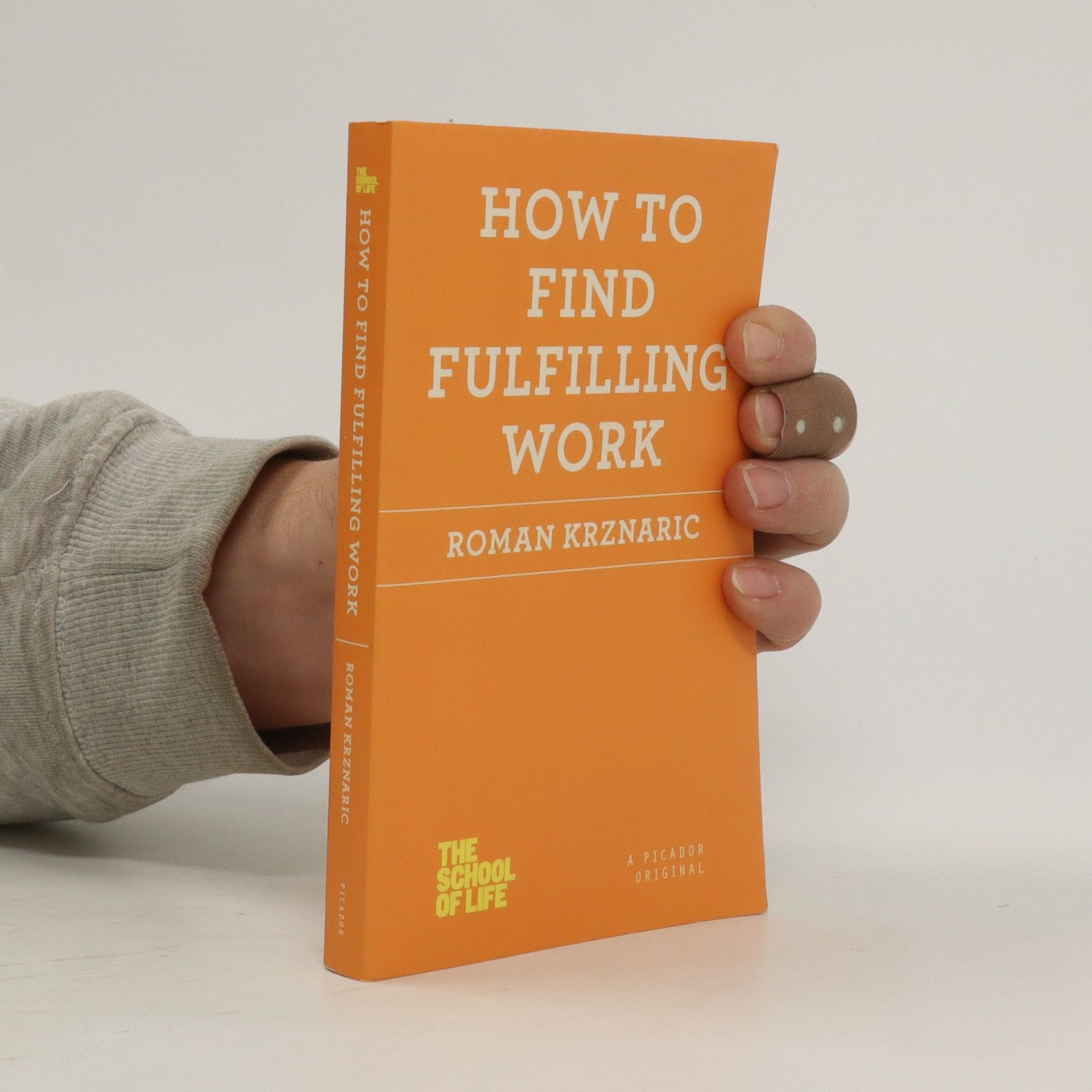The Good Ancestor: A Radical Prescription for Long-Term Thinking
- 288 stránek
- 11 hodin čtení
Now in paperback: A call to save ourselves and our planet that gets to the root of the current crisis—society’s extreme short-sightedness
Roman Krznaric je kulturní myslitel a zakládající člen Školy života. Jeho práce se zabývá tím, jak můžeme využít empatii a konverzaci k dosažení společenské změny a osobního naplnění. Krznaric se zaměřuje na hlubší zkoumání toho, jak žít smysluplně, a jeho díla jsou překládána do mnoha jazyků, což dokazuje jejich globální dopad a relevanci pro čtenáře po celém světě. Jeho přístup nabízí praktické a filozofické vhledy pro ty, kdo hledají hlubší porozumění svému životu.






Now in paperback: A call to save ourselves and our planet that gets to the root of the current crisis—society’s extreme short-sightedness
A call to save ourselves and our planet that gets to the root of the current crisis--society's extreme short-sightedness
Could economists have foreseen the 2008 crash? Could political pundits have predicted Brexit or Trump? Long-term thinking struggles to take root in a world where immediate results are demanded and rewarded. Short-term thinking is endemic across all aspects of life. In The Long Now, leading popular philosopher and bestselling author Roman Krznaric shows just how crucial long-term thinking is, not just for ordinary people but across political, economic, environmental and business worlds. From the personal to the political, Krznaric identifies the flaws of today's short-term mindset. Drawing on ideas from a wide range of perspectives including neuroscience, cultural history, politics, economics, art and religion, he offers eight key approaches as a roadmap for the future of long-term thinking and planning. Unless we change our habits today our quick-fix, short-term culture can threaten societies in the long run.
Showing the lessons that can be learned from the past, the author explores twelve universal topics, from work and love to money and creativity, and reveals the wisdom that we've been missing. It stepping into the territory of Alain de Botton and Theodore Zeldin, is 'practical history' - using the past to think about our day to day lives.
A practical and inspirational guide to examining your career and deciding whether it truly makes you happy—this book will show you the steps it takes to find a job that truly makes you thrive. The desire for fulfilling work is one of the great aspirations of our age. This book reveals explores the competing claims we face for money, status, and meaning in our lives. Drawing on wisdom from a variety of disciplines, cultural thinker Roman Krznaric sets out a practical guide to negotiating the labyrinth of choices, overcoming fear of change, and finding a career in which you thrive. Overturning a century of traditional thought about career change, Krznaric reveals just what it takes to find life-enhancing work. The School of Life is dedicated to exploring life's big questions in highly-portable paperbacks, featuring French flaps and deckle edges, that the New York Times calls "damnably cute." We don't have all the answers, but we will direct you towards a variety of useful ideas that are guaranteed to stimulate, provoke, and console.
Rob, Dom, and Mikey were tired of the corporate grind and sought a way to change careers but found no resources to help them. So, they created their own platform, leading to the launch of Escape the City, which now has over 100,000 members seeking unconventional careers. They became the first online start-up to raise more than £500,000 through investment equity crowdfunding, entirely from their community. This book serves as the inspirational guide they wished they had during their own transitions, filled with practical advice and motivation for those stuck in unfulfilling corporate jobs. It encourages readers to step off the corporate treadmill and pursue exciting jobs, start businesses, or embark on adventures. Testimonials from readers highlight the book's impact, inspiring them to take bold steps toward fulfilling careers. From planning escapes to traveling and starting new ventures, the feedback reflects a shared sense of liberation and motivation. Many express gratitude for the guidance provided, noting how the book resonated with their feelings and aspirations, ultimately helping them take decisive action toward a more passionate and fulfilling life.
Langfristiges Denken in einer kurzlebigen Welt
Wir leben in einer Zeit, die vom kurzfristigen Denken beherrscht wird. Aber in fünfzig, in hundert, in fünfhundert Jahren werden immer noch Menschen auf unserem Planeten leben, arbeiten, lieben und träumen. Sie alle werden tiefgreifend davon beeinflusst sein, wie wir heute handeln. Die größte Frage, vor der jeder von uns steht, lautet also: Wie können wir gute Vorfahren sein? Roman Krznaric hat die Antwort. Von bahnbrechenden Konzepten wie dem »Kathedralendenken« über Zukunftsräte in Japan bis hin zu einer Bibliothek in Norwegen, die erst 2114 ihre Pforten öffnet, um einhundert bis dahin unveröffentlichte literarische Werke zu präsentieren: Inspiriert von Lösungen aus der ganzen Welt, erklärt er, wie wir lernen können, heute langfristig zu denken, um ein besseres Morgen zu schaffen. Der Pfad des guten Vorfahren liegt vor uns. Wir müssen ihn jetzt beschreiten.